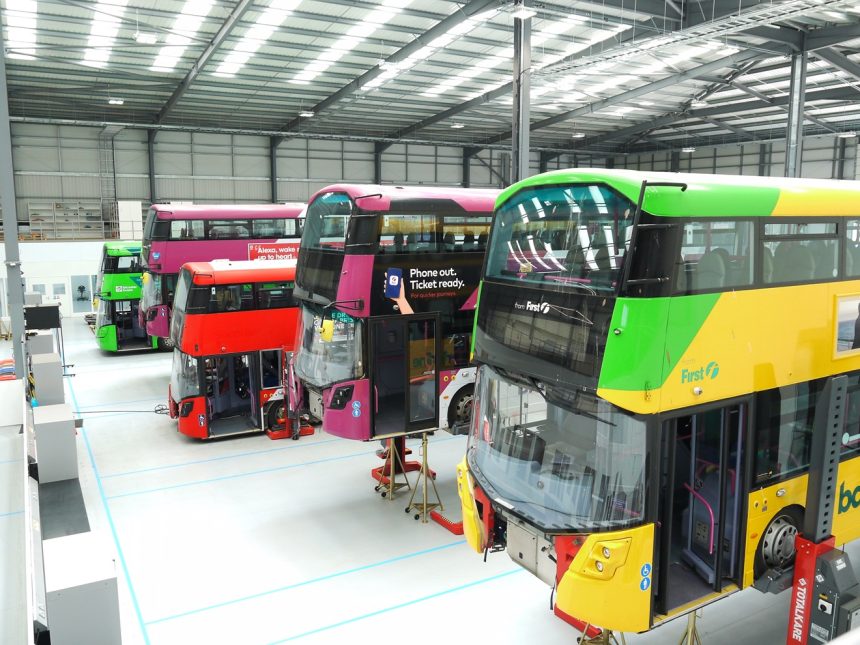Back in 2021, Zemo Partnership and industry collaborators identified opportunity to repower mid-life diesel buses to zero-emission alternatives and considered the impact it could have on accelerating the decarbonisation of the UK’s bus fleet in tandem with the introduction of new zero tailpipe emission vehicles.
At the time, operators were reticent to invest in repower owing to a poor track record of such buses in service and technology concerns associated with zero-emission vehicles more widely.
Alongside that hesitation, significant grant funding was made available to support the purchase of new zero-emission vehicles and associated infrastructure. Understandably, operators focused on buying new while the funding was available.
As a result, the UK has seen rapid adoption of new zero tailpipe emission buses to a point where over 10% of the nation’s fleet is now zero-emission and they account for the majority of new vehicles entering the market in the last three years. Repower, however, has remained a niche option left behind by much of the industry.
Ever since grant funding has been available to purchase new zero-emission buses, Zemo has supported their accreditation through the Zero Emission Bus Certification Scheme to ensure that public money is going toward efficient vehicles that will perform robustly in service.
The framework is there for purchasing new zero-emission vehicles. Funding available to bridge the cost difference compared to diesel alternatives and an independent means to accredit them supports operator confidence and encourages manufacturers to drive technology advancement.
It became clear that a similar framework would be required to realise the potential of zero-emission repowering. To that end, Zemo developed the Zero Emission Vehicle Repower Accreditation Scheme, or ZEVRAS.
It is supported by the Department for Transport and the Energy Saving Trust and launched in spring 2024. ZEVRAS includes a vast array of technical product requirements in addition to company assurances that suppliers must meet to achieve accreditation.
The scheme is also the gateway to becoming eligible for funding, in this case the 22p per kilometre BSOG operational incentive in England.
So, we have funding available to support repower, an independent accreditation scheme to ensure those vehicles are robust and reliable, and a growing number of UK suppliers driving technology development. What is stopping operators from repowering in large volumes?
The reality is that some are realising the opportunity. Perhaps most notable is First Bus, which last year placed orders with both Equipmake and Wrightbus NewPower and introduced those vehicles to various fleets.
Lothian, too, debuted its first examples of KleanDrive repowered buses on open-top routes in Edinburgh, a model followed by sightseeing operators Big Bus, Golden Tours and Tootbus in London, where orders have been placed with Equipmake and Magtec.
While these examples have been in relatively small volumes, they are nonetheless pioneering projects that will spread the word about battery-electric bus repower and what it can achieve.
With questions about what further grant support for new zero tailpipe emission buses will be forthcoming, the appeal of repowering will no doubt be growing for other operators across the country that will want to continue their decarbonisation journeys but may not have the financial means to go entirely down the new vehicles route.
After years of the industry ‘dipping its toes’ into repowering, time will tell if 2025 is the year that repower takes its place as a viable choice to help accelerate decarbonisation of the UK’s bus fleet. One thing is for sure: All the pieces of the puzzle are in place to make it happen.
A happy new year to all from Zemo Partnership.



























